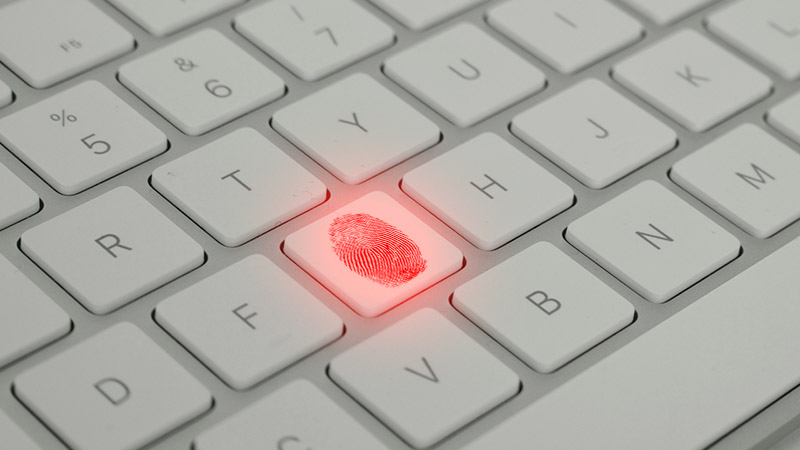The cybersecurity issue is a raging bull for both enterprises and individuals in the modern world. You need to secure your devices from this danger. A cybersecurity company estimated that the cost of cybercrime would increase by 15% annually to $10.5 trillion by 2025.
There are several forms of cybercrimes, and you might become a victim of any of them. It might be a trojan horse, phishing assault, ransomware, MITM attack, or any other type. These cyber-attacks may cause financial loss, data loss, and significant damage to your company’s reputation. Therefore, protecting all of your gadgets from hackers is essential.
Cyber attacks are serious. There are a few precautions you may take to prevent them and secure your device, though. Here are the 7 strategies to secure your devices from hackers to aid you in figuring it out!
How to Avoid Being Hacked in?
The straightforward procedures below can assist you if you are worried about how to secure your devices against cyberattacks.
1. Install a Reliable Antivirus Program
One of the greatest methods to guard your device against potential hacker assaults is to install reliable antivirus software. Your device may be protected from malware by using antivirus software that quickly detects it. Each type of virus has a different effect on your device. They may slow down your computer, install or remove applications, send unsolicited emails, or erase your data.
Antivirus software, however, is intended to spot these problems since they are already known to them. By frequently scanning your device and keeping it up to date, it may safeguard your operating system. Additionally, it may get rid of unnecessary system files, which can speed up the system. To ensure that it protects against more recent infections, you must use the most up-to-date and reliable version.
2. Purchase a Reliable VPN
Free public WIFI is a blessing, but if hackers find your IP address and start interfering with your device. The easiest way to prevent that is to make use of a trustworthy Virtual Private Network (VPN), such as NordVPN, Express VPN, or Surfshark. A VPN gives you a secure route to use when using the free wifi to browse.
Additionally, to free WiFi, a VPN will enable you to access some dubious websites. It will conceal both your present location and your Internet Protocol (IP) address. You may securely browse the internet while doing this and keep yourself hidden from online attackers.
3. Make sure the router is Encryption
By ensuring router encryption, you may further defend your devices from online threats. A router provides you with several alternatives for encryption, but you must choose the most recent encryption technique. Because WEP and WPA are so out of date, adequate encryption cannot be guaranteed.
WPA 2 and WPA 3 are the most recent versions of encryption to secure your device. In order to avoid having insufficient encryption, your router must at least support WPA 2. With only a few clicks in the Network and Internet settings, you can simply upgrade the router encryption.
4. Only Download From Reliable Websites
Malware may reach your device if you download media from dubious websites. Some dishonest websites could have bad download links that could lead to the Trojan Horse virus. When you click on such links, a file that contains various infections may download to your computer.
Your system may be negatively impacted by this infection. It could cause system issues such as sluggish performance, overheating, and data loss. You must thus verify the legitimacy of the website before downloading anything from it.
5. Use authentication and authorization processes.

One of the easiest things you can do to guarantee the security of data on your devices is to use the authentication and authorization procedure. Although utilizing fingerprint or face recognition and creating strong passwords is beneficial, you must activate two-factor authentication and authorization to further safeguard your devices.
The procedure that enables you to provide your devices with an additional degree of security is two-factor authentication. When you attempt to log in from another device, it sends a verification code to your phone. In this manner, you will be informed if another person tries to access your device. It will prevent hackers from obtaining your login information and accessing your accounts.
6. Regularly perform backups
It is crucial that you take certain preventative steps for data recovery in order to defend yourself from hacking assaults. Any kind of cyberattack that might cause data loss should be anticipated by you. Because of this, making backups is crucial, and you should do it regularly to secure your device and data.
In the event that hackers are successful in breaking the security of your device, backups can save your device’s data on a cloud server from which you can simply restore it. You wouldn’t risk data loss because of it. You would benefit if you switched from one gadget to another as well.
7. Steer clear of spam emails
One of the methods hackers employ the most frequently is sending spam emails. By tricking consumers and obtaining their financial and personal information, hackers employ them in phishing schemes. Additionally, some of the attached files in these emails may include ransomware or other viruses that can harm your devices. To avoid falling victim to phishing, it would be prudent to disregard your spam emails and communications.
We hope these points will definitely help you secure your devices from hackers and fight again dangerous cyber attacks.
